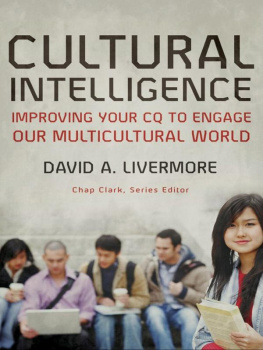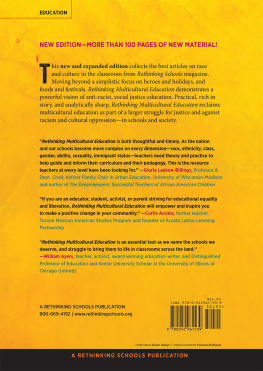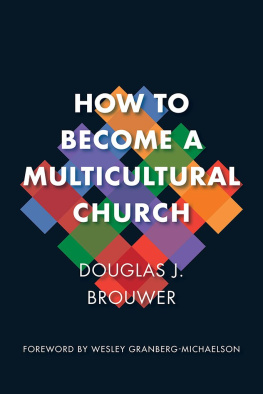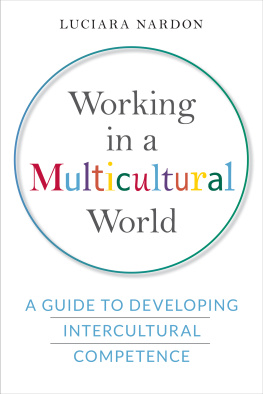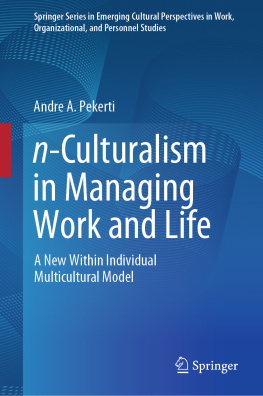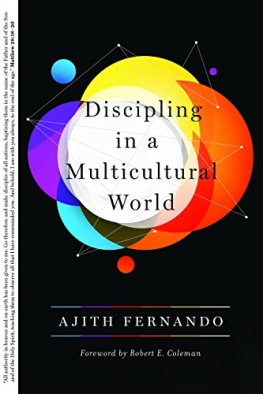Elizabeth Conde-Frazier - A Many Colored Kingdom: Multicultural Dynamics for Spiritual Formation
Here you can read online Elizabeth Conde-Frazier - A Many Colored Kingdom: Multicultural Dynamics for Spiritual Formation full text of the book (entire story) in english for free. Download pdf and epub, get meaning, cover and reviews about this ebook. year: 2004, publisher: Baker Publishing Group, genre: Religion. Description of the work, (preface) as well as reviews are available. Best literature library LitArk.com created for fans of good reading and offers a wide selection of genres:
Romance novel
Science fiction
Adventure
Detective
Science
History
Home and family
Prose
Art
Politics
Computer
Non-fiction
Religion
Business
Children
Humor
Choose a favorite category and find really read worthwhile books. Enjoy immersion in the world of imagination, feel the emotions of the characters or learn something new for yourself, make an fascinating discovery.

- Book:A Many Colored Kingdom: Multicultural Dynamics for Spiritual Formation
- Author:
- Publisher:Baker Publishing Group
- Genre:
- Year:2004
- Rating:4 / 5
- Favourites:Add to favourites
- Your mark:
- 80
- 1
- 2
- 3
- 4
- 5
A Many Colored Kingdom: Multicultural Dynamics for Spiritual Formation: summary, description and annotation
We offer to read an annotation, description, summary or preface (depends on what the author of the book "A Many Colored Kingdom: Multicultural Dynamics for Spiritual Formation" wrote himself). If you haven't found the necessary information about the book — write in the comments, we will try to find it.
A Many Colored Kingdom: Multicultural Dynamics for Spiritual Formation — read online for free the complete book (whole text) full work
Below is the text of the book, divided by pages. System saving the place of the last page read, allows you to conveniently read the book "A Many Colored Kingdom: Multicultural Dynamics for Spiritual Formation" online for free, without having to search again every time where you left off. Put a bookmark, and you can go to the page where you finished reading at any time.
Font size:
Interval:
Bookmark:
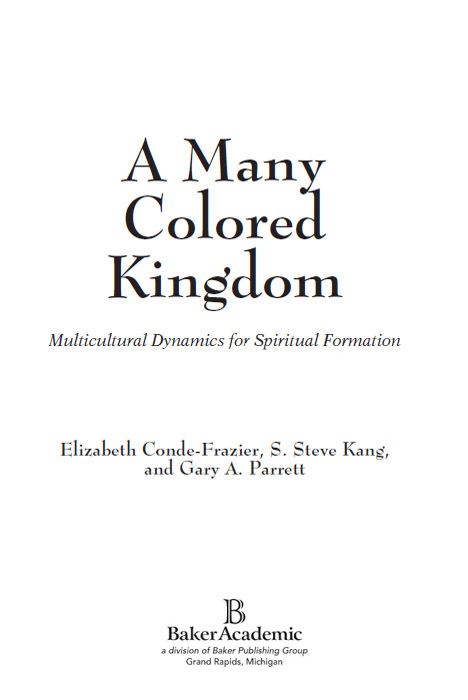
2004 by Elizabeth Conde-Frazier, S. Steve Kang, and Gary A. Parrett
Published by Baker Academic
a division of Baker Publishing Group
P.O. Box 6287, Grand Rapids, MI 49516-6287
www.bakeracademic.com
Ebook edition created 2011
All rights reserved. No part of this publication may be reproduced, stored in a retrieval system, or transmitted in any form or by any meansfor example, electronic, photocopy, recordingwithout the prior written permission of the publisher. The only exception is brief quotations in printed reviews.
ISBN 978-1-5855-8357-7
Library of Congress Cataloging-in-Publication Data is on file at the Library of Congress, Washington, DC.
Unless otherwise indicated, Scripture quotations are from the Holy Bible, New International Version. NIV. Copyright 1973, 1978, 1984 by Biblica, Inc. Used by permission of Zondervan. All rights reserved worldwide. www.zondervan.com
Scripture quotations identified NRSV are from the New Revised Standard Version of the Bible, copyright 1989 by the Division of Christian Education of the National Council of the Churches of Christ in the USA. Used by permission.
Contents
Introduction
An Exploration and an Experiment
E LIZABETH C ONDE -F RAZIER , S. S TEVE K ANG ,
AND G ARY A. P ARRETT
Probing Critical Issues
This book is both an exploration and an experiment. In terms of its subject matter, this book is an exploration of how ethnic and cultural diversity, and our interactions with such diversity, affect the dynamics of Christian spiritual formation. The conviction set forth in these pages is that when authentic relationships are built that embrace diverse backgrounds, tremendously positive growth in Christlikeness can occur. In terms of its format, this book is an experiment within that very exploration, for it is the work of three persons who, writing from diverse ethnic, cultural, and personal backgrounds, have been seeking to build such relationships. Further, each of us is actively engaged in facilitating such spiritual formation and relationships in both academic and church contexts.
Elizabeth Conde-Frazier, a Puerto Rican-American, teaches courses in religious education at Claremont School of Theology. S. Steve Kang is a Korean-American who teaches in the department of Christian formation and ministry at Wheaton College. Gary A. Parrett, a white American, teaches in the area of educational ministries at Gordon-Conwell Theological Seminary. The unique perspective each of us brings involves not only different cultural and ethnic experiences but other differences as well. For example, each of us is from a different denominational tradition and teaches in an academic setting with its own unique cultural realities. We have been cultivating personal and professional relationships with one another since 1996. This book represents some of the fruit of our friendships, as well as our common passion for the ministry of Christian formation and an appreciation of the ethnic diversity of the church, which, we believe, is a critical part of Gods design for the health and wholeness of the body of Christ.
It is our intention to stimulate the understanding, conversation, and practices of the local church in light of the wondrous realities of the global church of Jesus Christ. It is our hope that the local church can rediscover its unique responsibility as a subculture of the global kingdom culture, that is, the kingdom of God. It is hoped, further, that the ideas in this book will provide resources for Christian educators in academic settings and will encourage each reader toward personal growth in kingdom consciousness and obedience. Indeed, we desire to come alongside each readerthrough the medium of this bookto seek an encounter together with the truth, taking aim to perceive it more clearly, consider it more critically, embrace it more passionately, obey it more faithfully, and embody it with greater integrity. Specifically, this book examines the implications of the Great Commission to make disciples of all nations ( panta ta ethn ; Matt. 28:19) and the great commandments requirement of each of us: Love your neighbor as yourself (Mark 12:31).
There is much to suggest that evangelical churches in America are often out of alignment with Gods heart and purposes regarding ethnic diversity. In their challenging book, Divided by Faith ,
Factors that contribute to this partition along racial lines, in the view of Emerson and Smith, are many and varied. They point out that blacks and whites view the sources of racial tensions very differently, with whites tending to look at the problems as individualistic and blacks tending to see structural issues as the primary source. Emerson and Smith paid special attention to the role that marketing religion plays in keeping the church in America divided. As churches heed the wisdom of church growth leaders, they carve out a market niche for their church planting and evangelistic efforts. Typically, the niche that is sought is intentionally homogeneous. It is often by design, then, that Americas evangelical churches are largely mono-ethnic.
Certainly, arguments can be made, especially those with an evangelistic thrust, for targeting particular audiences. But what happens if such methods are successful in bringing large numbers into the church? What kind of church will that be? What kind of Christians will such a church form? If a homogeneous church is planted in a community that is truly heterogeneous, how will members defend its shape in light of the biblical teaching that the cross destroyed the barriers that separated us not only from God but also from one another? What will members say to the watching world, who, according to Jesus, will believe that God sent his Son when they behold the unity of Christs followers (John 17:23)? Is such a church simply a way station for people until they are ready to move on to more mature experiences of biblical koinnia? The reality is that such questions raise complex issues. The reality is, further, that there are no easy solutions to these issues. Tragically, however, many Christians seem uninterested in seriously engaging the questions at all. It should be expected that believers would disagree on how to answer such questions (after all, we manage to disagree on just about everything else); to simply ignore these matters, on the other hand, is indefensible.
Some may suggest that there is an easy answer: do away with all the hyphenated American congregations (such as African-American, Cuban-American, Taiwanese-American). Then we can all just be Americans and worship together. Often, when people set forth such a plan, however, they do not offer to leave their churches to join those hyphenated Americans in worship. They simply suppose that they can join us. After all, were just American. The further supposition may be that when they join us, they can simply check their hyphenatedness at the front door, and we will all get along just fine.
Miroslav Volf, reflecting on Pauls teachings about the church, argues that the Bible points us in another direction: Baptism into Christ creates a people as the differentiated body of Christ. Bodily inscribed differences are brought together, not removed.... The Pauline move is not from the particularity of the body to the universality of the spirit, but from separated bodies to the community of interrelated bodiesthe one body in the Spirit with many discrete members .
The reality in far too many cases is that churches, the presumed agents of reconciliation, are at best impotent and at worst accomplices in the strife.
Facing Our Ambivalent Selves
In many respects, it seems that the experiences of evangelical churches in America simply mirror the enduring national struggles surrounding these issues. The diversity of cultures and the worlds they represent have long been coming into contact with one another, especially in urban areas but even in places not once seen as diverse. Anthropologist Renato Rosaldo speaks of this dynamic as one in which a person is continuously encountering persons from different races, ethnicities, and classes.
Next pageFont size:
Interval:
Bookmark:
Similar books «A Many Colored Kingdom: Multicultural Dynamics for Spiritual Formation»
Look at similar books to A Many Colored Kingdom: Multicultural Dynamics for Spiritual Formation. We have selected literature similar in name and meaning in the hope of providing readers with more options to find new, interesting, not yet read works.
Discussion, reviews of the book A Many Colored Kingdom: Multicultural Dynamics for Spiritual Formation and just readers' own opinions. Leave your comments, write what you think about the work, its meaning or the main characters. Specify what exactly you liked and what you didn't like, and why you think so.


